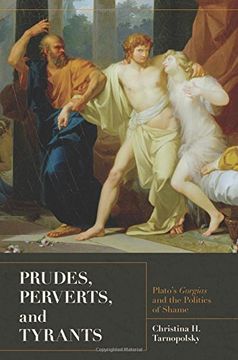Share
Prudes, Perverts, and Tyrants: Plato's Gorgias and the Politics of Shame
Christina H. Tarnopolsky (Author)
·
Princeton University Press
· Hardcover
Prudes, Perverts, and Tyrants: Plato's Gorgias and the Politics of Shame - Christina H. Tarnopolsky
Choose the list to add your product or create one New List
✓ Product added successfully to the Wishlist.
Go to My Wishlists
Origin: U.S.A.
(Import costs included in the price)
It will be shipped from our warehouse between
Monday, June 10 and
Friday, June 21.
You will receive it anywhere in United Kingdom between 1 and 3 business days after shipment.
Synopsis "Prudes, Perverts, and Tyrants: Plato's Gorgias and the Politics of Shame"
In recent years, most political theorists have agreed that shame shouldn't play any role in democratic politics because it threatens the mutual respect necessary for participation and deliberation. But Christina Tarnopolsky argues that not every kind of shame hurts democracy. In fact, she makes a powerful case that there is a form of shame essential to any critical, moderate, and self-reflexive democratic practice. Through a careful study of Plato's Gorgias, Tarnopolsky shows that contemporary conceptions of shame are far too narrow. For Plato, three kinds of shame and shaming practices were possible in democracies, and only one of these is similar to the form condemned by contemporary thinkers. Following Plato, Tarnopolsky develops an account of a different kind of shame, which she calls "respectful shame." This practice involves the painful but beneficial shaming of one's fellow citizens as part of the ongoing process of collective deliberation. And, as Tarnopolsky argues, this type of shame is just as important to contemporary democracy as it was to its ancient form. Tarnopolsky also challenges the view that the Gorgias inaugurates the problematic oppositions between emotion and reason, and rhetoric and philosophy. Instead, she shows that, for Plato, rationality and emotion belong together, and she argues that political science and democratic theory are impoverished when they relegate the study of emotions such as shame to other disciplines.

